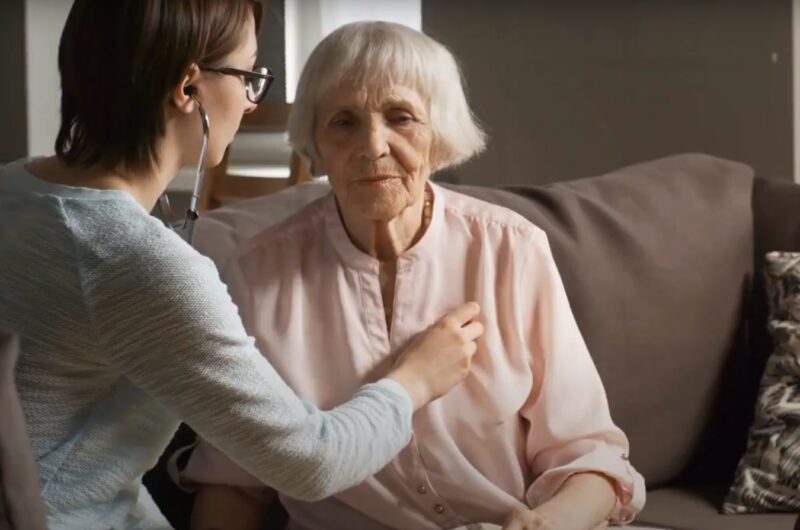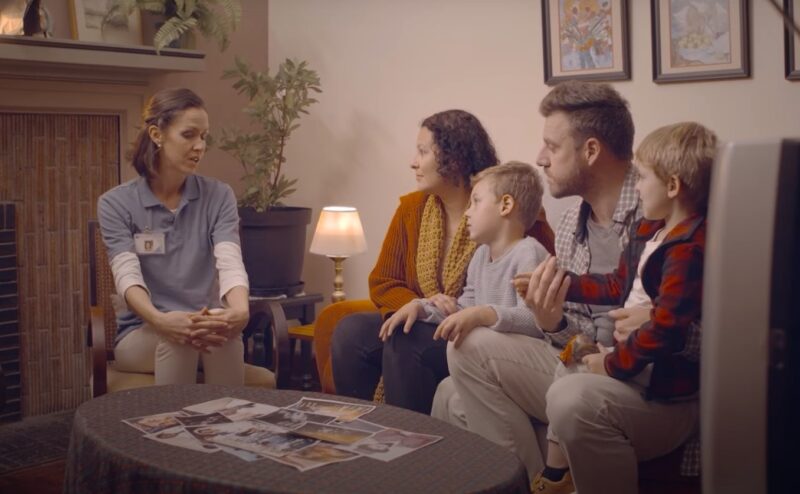Seeing a loved one battling a life-threatening illness or nearing the end is traumatic. In most cases, the care they receive in hospitals or nursing homes does not align with their expectations and wishes.
According to recent estimates, nearly 20 million people globally require end-of-life care in some form. In the US alone, seven thousand people, on average, die every day from various illnesses.
You can imagine the scope of the palliative care problem in the country. Unfortunately, despite being one of the best countries for healthcare standards, America ranked 43rd in a recent end-of-life care quality survey among 81 countries. However, you shouldn’t go by numbers when it comes to ensuring the best for a terminally ill loved one.
Planning for palliative care at home is an effective way to get the best of both worlds. With this option, patients can spend their final days in the comfort of their space and amid their loved ones without missing out on professional care. The choice can save caregivers from anxiety and burnout. However, choosing this alternative requires a good understanding of the arrangement, down to its cost and benefits.
In this article, we will explore the ins and outs of seeking palliative care at home.
Understand the Core of Palliative Care

Before opting for palliative care at home, you must understand what it actually entails. According to the Mayo Clinic, palliative care is a broad term covering specialized medical care focusing on relief from pain and symptoms of a grave illness. Additionally, it helps patients handle the side effects of medical treatments.
It also aims to improve a patient’s quality of life by focusing on their physical, emotional, and spiritual needs. A palliative care team includes doctors, nurses, social workers, and other trained specialists working together to add an extra layer of support to ongoing care. Unlike hospice care, palliative care can begin at any stage of a disease rather than at the final stages of life.
Assess Your Loved One’s Needs
The next step is to assess your loved one’s needs, depending on their medical condition. Start by understanding their symptoms and pain levels. Also, identify their emotional or spiritual concerns, which most people have when approaching the end of their lives. While assessing their needs, you must understand that they will change as the illness progresses.
Consulting their healthcare provider can help you get valuable insights into their current and long-term care needs. A clear view enables you to determine the appropriate level of palliative care your loved one requires. Further, you are in a better place when it comes to making difficult decisions about caring for a loved one.
Create a Comprehensive Care Plan

Whichever model of palliative care you choose for an ailing family member, you want them to be as comfortable as possible. A comprehensive care plan can help you achieve this goal, specifically when opting for the at-home model, where you do not have a hospital team to handle daily decisions. It should outline their medical, emotional, and practical requirements.
Here are the aspects it should address:
- Pain management
- Careful management of other symptoms such as fatigue, nausea, mobility issues, breathing or swallowing difficulties, and loss of bowel or bladder function
- Assistance with daily activities such as bathing, dressing, and meal preparation
- Psychological support to help patients cope with anxiety and depression
- Guidance regarding end-of-life decisions
Collaborating with the patient’s healthcare provider and palliative care specialists can help you develop a plan that addresses their specific needs.
Find Reliable Palliative Care Providers

According to a 2022 report, the percentage of hospitals providing palliative care has more than tripled since 2022. As of 2020, more than 83% of them had a palliative care team. The growth statistics indicate the availability of in-home providers, too. Finding a reliable one to help and support your loved one is crucial.
Hiring a nurse specializing in end-of-life care is a good option to ensure around-the-clock availability and support. According to onlinenursing.uindy.edu, nursing professionals imbibe service learning as a part of their academic curriculum. It makes them suitable for the roles of palliative caregivers, capable of going beyond the physical needs of terminally ill patients and addressing their emotional needs as well.
You can simplify the search for the right caregiver by seeking recommendations or referrals to palliative care services in your area. Your loved one’s healthcare provider is the best person to give them. Also, look for local palliative care agencies offering home-care services.
At this point, you must consider the cost of these services. Statistics show that hospice care at home may cost $150 per day. While it is far less than $500 per day for inpatient care, you should still be ready for the financial commitment.
Coordinate Care Services
In-home palliative care is different from institutional care because you do not have access to an entire team in one place. Once you identify potential palliative care providers, you must coordinate their services effectively. For example, a nurse will be around for 24 hours, but you will have to schedule appointments for home visits from healthcare professionals.
Coordinating medication management and delivery is another aspect you need to manage. The objective is to ensure that your loved one’s care needs are met consistently. Prioritize open communication with the entire team to ensure they are on the same page regarding the plan and goals of palliative care.
Provide Emotional Support

The end-of-life stage can be overwhelming for patients and their loved ones, and they need emotional support during the journey. As you opt for palliative care at home, providing emotional support to your loved one should be paramount. According to the American Psychological Association, psychologists can enhance comfort and quality of life for patients struggling with serious illnesses.
Besides including a psychologist in your loved one’s palliative care team, you must do your bit to lend a hand. Listen to their concerns, offer companionship and reassurance, and let them express their feelings regarding their end-of-life preferences. Seeking counseling services for yourself can help you navigate the emotional challenges of caring for a loved one at home.
In conclusion, palliative care for a seriously ill loved one at home can be a wise decision, provided you plan and prepare for it. A team of caregivers cannot be around in this setting, but finding a reliable professional can ensure proper care for a patient. The best part is that your loved one receives the comfort, support, and dignity they deserve.

